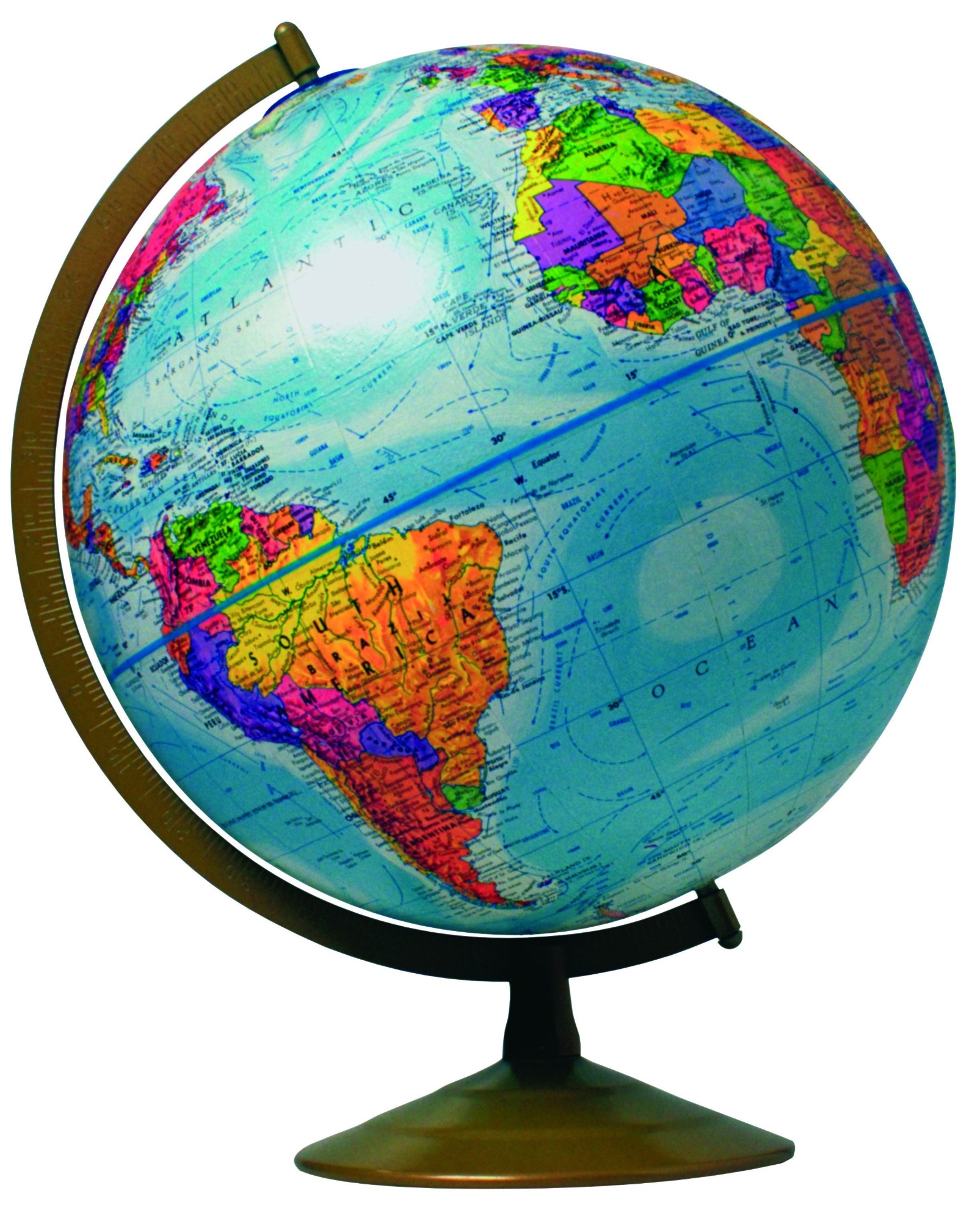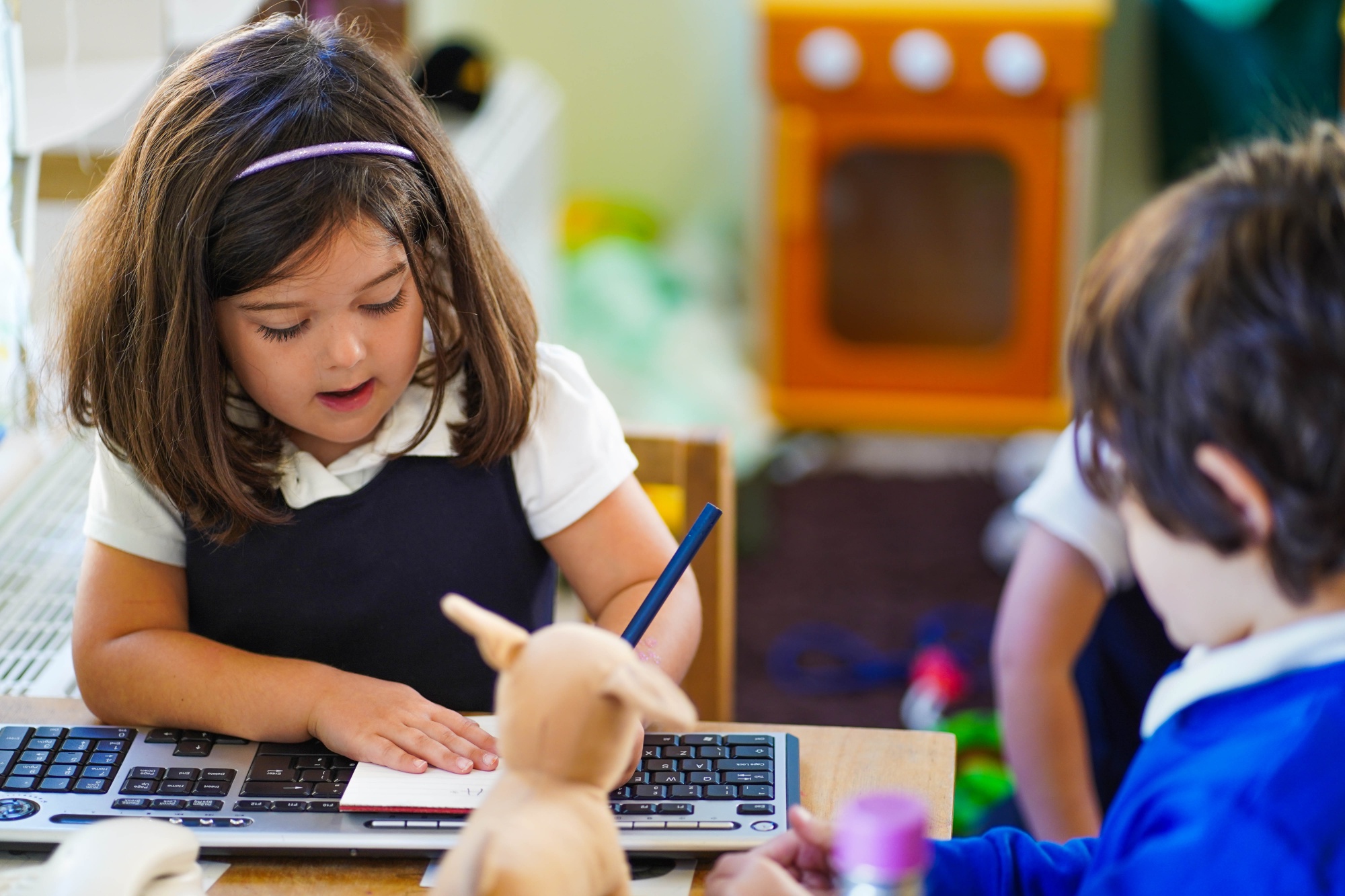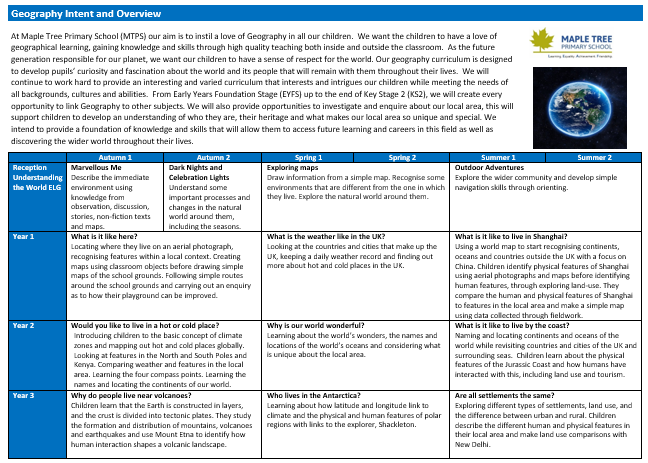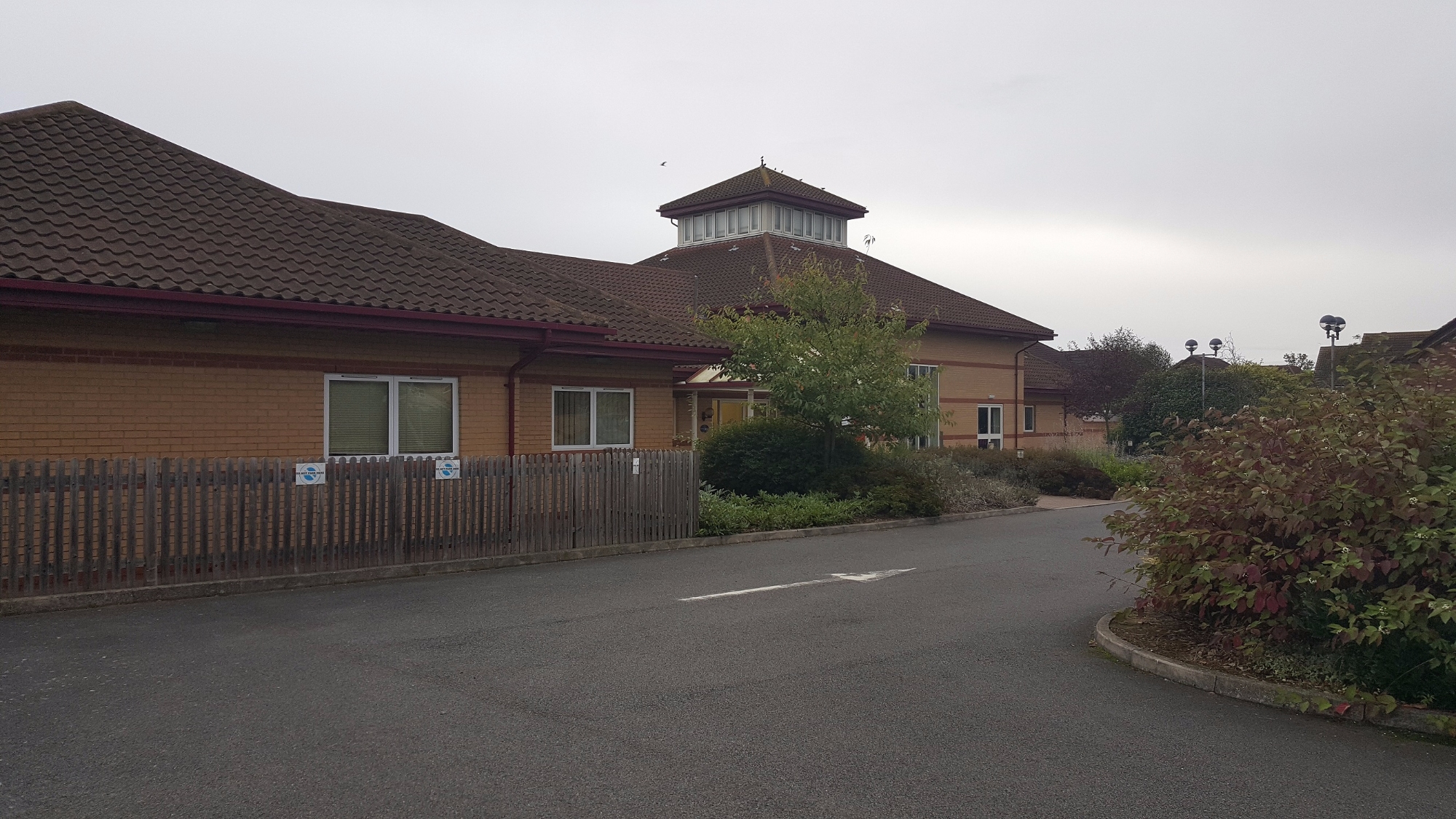Geography

INTENT
At Maple Tree Primary School our aim is to instil a love of Geography in all our children. We want the children to have a love of geographical learning, gaining knowledge and skills through high quality teaching both inside and outside the classroom. As the future generation responsible for our planet, we want our children to have a sense of respect for the world. Our geography curriculum is designed to develop pupils’ curiosity and fascination about the world and its people that will remain with them throughout their lives. We will continue to work hard to provide an interesting and varied curriculum that interests and intrigues our children while meeting the needs of all backgrounds, cultures and abilities. From Early Years Foundation Stage (EYFS) up to the end of Key Stage 2 (KS2), we will create every opportunity to link Geography to other subjects. We will also provide opportunities to investigate and enquire about our local area, this will support children to develop an understanding of who they are, their heritage and what makes our local area so unique and special. We intend to provide a foundation of knowledge and skills that will allow them to access future learning and careers in this field as well as discovering the wider world throughout their lives.
Please click the image below to see our whole school overview for Geography.
IMPLEMENTATION
The National curriculum organises the Geography attainment targets under four subheadings or strands:
- Locational knowledge
- Place knowledge
- Human and physical geography
- Geographical skills and fieldwork
We use Kapow Primary’s Geography scheme which has a clear progression of skills and knowledge within these four strands across each year group to ensure that attainment targets are securely met by the end of each key stage.
The Kapow Primary scheme is a spiral curriculum, with essential knowledge and skills revisited with increasing complexity, allowing pupils to revise and build on their previous learning. Locational knowledge, in particular, is reviewed in each unit to coincide with our belief that this will consolidate children’s understanding of key concepts, such as scale and place, in Geography. Cross-curricular links are included throughout each unit, allowing children to make connections and apply their Geography skills to other areas of learning.
Each unit contains elements of geographical skills and fieldwork to ensure that fieldwork skills are practised as often as possible. Kapow Primary units follow an enquiry cycle that maps out the fieldwork process of question, observe, measure, record, and present, to reflect the elements mentioned in the National Curriculum. This ensures children will learn how to decide on an area of enquiry, plan to measure data using a range of methods, capture the data and present it to a range of appropriate stakeholders in various formats.
Fieldwork includes smaller opportunities on the school grounds to larger-scale visits to investigate physical and human features. Developing fieldwork skills within the school environment and revisiting them in multiple units enables pupils to consolidate their understanding of various methods. It also gives children the confidence to evaluate methodologies without always having to leave the school grounds and do so within the confines of a familiar place. This makes fieldwork regular and accessible while giving children a thorough understanding of their locality, providing a solid foundation when comparing it with other places.
Geography is currently taught in alternate weeks across the whole year so that the time between lessons allows for the sequence to take place and aid the development of knowledge and retrieval.
IMPACT
An enquiry-based approach to learning will allow teachers to assess children against the National Curriculum expectations for Geography. The impact of Kapow Primary’s scheme is constantly monitored through both formative and summative assessment opportunities.
Teachers are supported in assessing pupils against the learning objectives each lesson. Furthermore, each unit has a unit quiz and knowledge catcher, which can be used at the start or end of the unit to assess children’s understanding. Opportunities for children to present their findings using their geographical skills will also form part of the assessment process in each unit.
After implementing Kapow Primary Geography, pupils should leave school equipped with a range of skills and knowledge to enable them to study Geography with confidence at Key Stage 3. We hope to shape children into curious and inspired geographers with respect and appreciation for the world around them alongside an understanding of the interconnection between the human and the physical.
The expected impact of following the Kapow Primary Geography scheme of work is that children will:
- Compare and contrast human and physical features to describe and understand similarities and differences between various places in the UK, Europe and the Americas.
- Name, locate and understand where and why the physical elements of our world are located and how they interact, including processes over time relating to climate, biomes, natural disasters and the water cycle.
- Understand how humans use the land for economic and trading purposes, including how the distribution of natural resources has shaped this.
- Develop an appreciation for how humans are impacted by and have evolved around the physical geography surrounding them and how humans have had an impact on the environment, both positive and negative.
- Develop a sense of location and place around the UK and some areas of the wider world using the eight-points of a compass, four and six-figure grid references, symbols and keys on maps, globes, atlases, aerial photographs and digital mapping. Include a paragraph that explains your assessment models (AfL), tracking and evidencing progress processes in Geography.
- Identify and understand how various elements of our globe create positioning, including latitude, longitude, the hemispheres, the tropics and how time zones work, including night and day.
- Present and answer their own geographical enquiries using planned and specifically chosen methodologies, collected data and digital technologies.
- Meet the end of key stage expectations outlined in the National curriculum for Geography.
The progress and impact of our geography curriculum is measured in the following way:
- Assessing children’s understanding of vocabulary before and after the unit is taught with a knowledge organiser.
- Reviewing images and videos of the children’s practical learning.Discussing the learning with pupils (pupil voice).
- Moderation staff meetings where pupil’s books are scrutinised and there is the opportunity for a dialogue between teachers to understand their class’s work.
- Marking of written work in books following the marking policy.
- Learning walks
- A finished product at the end of the unit such as a double page spread or fact sheet.
Children’s attainment and progress is shared with the Geography subject leader to ensure staff CPD is used effectively.
Humanities Programmes of Study:
Please see the Curriculum overviews for each class on the Curriculum page.
Keep checking the website for pictures and stories about what the children are getting up to!



